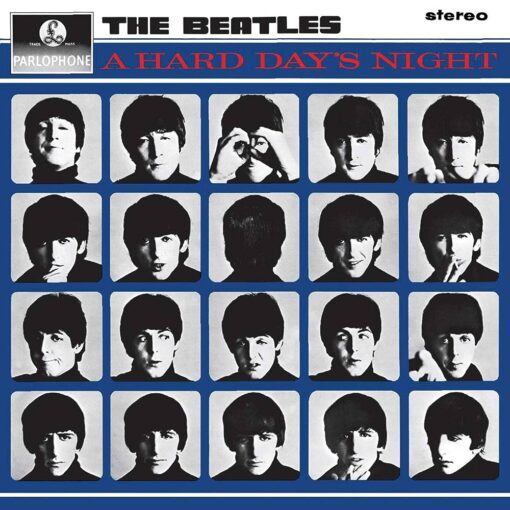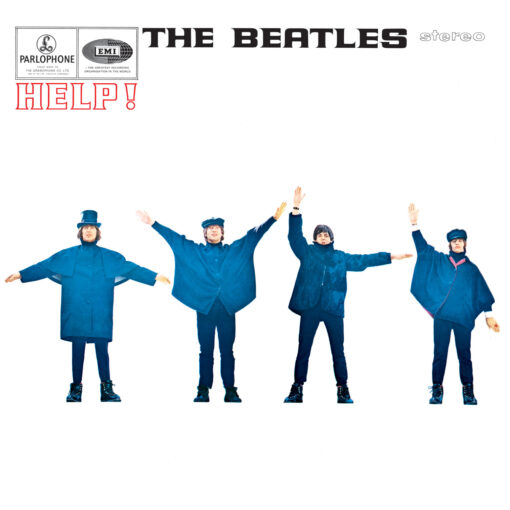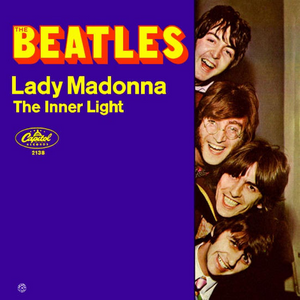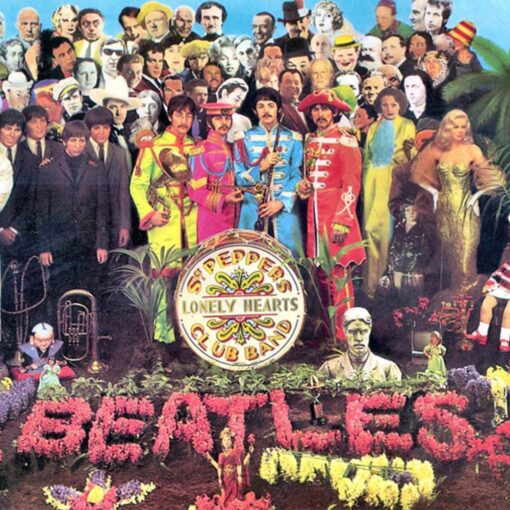- Published in 1968
- Author: Lennon/McCartney
- Track 25 on “The Beatles – White Album“
- Track 1 on “The Beatles 1967-1970” (Blue Album)
- Track 8 on “Past Masters Volume 2“
JOHN 1980: “Completely me. We recorded the song twice. The Beatles were getting real tense with each other. I did the slow version (Revolution 1) and I wanted to put it out as a single: as a statement of the Beatles’ position on Vietnam and the Beatles’ position on revolution. The first take of ‘Revolution’ …well, George and Paul were resentful and said it wasn’t fast enough. Now, if you go into the details of what a hit record is and isn’t, maybe. But the Beatles could have afforded to put out a slow, understandable version of ‘Revolution’ as a single, whether it was a gold record or a wooden record.”
About “Revolution 1”
“Revolution 1” was written by John Lennon and credited to the Lennon–McCartney partnership. Three versions of the song were recorded and released in 1968, all during sessions for the Beatles’ self-titled double album, also known as “the White Album”: a slow, bluesy arrangement (titled “Revolution 1”) that would make the final cut for the LP; an abstract sound collage (titled “Revolution 9“) that originated as the latter part of “Revolution 1” and appears on the same album; and the faster, hard rock version similar to “Revolution 1”, released as the B-side of “Hey Jude“. Although the single version was issued first, it was recorded several weeks after “Revolution 1”, as a remake specifically intended for release as a single. In addition, a promotional video for the song was shot, using the musical backing track from the hard rock version, along with live-sung lyrics that more closely resemble the “Revolution 1” version.
Inspired by political protests in early 1968, Lennon’s lyrics expressed sympathy with the need for social change but doubt in regard to the violent tactics espoused by members of the New Left. Despite his bandmates’ reservations, he persevered with the song and insisted it be included on their next single. When released in August, the song was viewed by the political left as a betrayal of their cause and a sign that the Beatles were out of step with radical elements of the counterculture. The release of “Revolution 1” in November indicated Lennon’s uncertainty about destructive change, with the phrase “count me out” recorded instead as “count me out – in”. Lennon was stung by the criticism he received from the New Left and subsequently espoused the need for Marxist revolution, particularly with his 1971 single “Power to the People”. In one of the final interviews he gave before his death in 1980, however, he reaffirmed the pacifist sentiments expressed in “Revolution 1”.
The single “Revolution” peaked at number 12 on the Billboard Hot 100 in the US and topped singles charts in Australia and New Zealand. The Beatles filmed a promotional clip for the single version, which introduced a new, leaner and more direct public image of Lennon. “Revolution” has received praise from several music critics, particularly for the intensity of the band’s performance and the heavily distorted guitar sound on the recording. In 1987, the song became the first Beatles recording to be licensed for a television commercial, which prompted a lawsuit from the surviving members of the group. The song has been covered by numerous artists, including Thompson Twins, who performed it at Live Aid in July 1985, and Stone Temple Pilots.
Meaning of “Revolution 1”
The lyrics of “Revolution 1” reflect a sense of disillusionment with the state of the world and a desire for change. The song expresses frustration with the existing order and calls for a revolution, but not necessarily a violent one. Instead, it suggests a more contemplative approach to revolution, advocating for a change in consciousness and societal values.
Overall, “Revolution 1” can be seen as a reflection of the turbulent times in which it was written, with social and political upheaval taking place around the world, including events like the Vietnam War and civil rights movements. The song’s message is open to interpretation, but it’s generally understood as a call for change and a questioning of the status quo.
Personnel
The Beatles
- John Lennon – lead vocals, acoustic guitar, lead guitar
- Paul McCartney – bass guitar, piano, Hammond organ, backing vocals
- George Harrison – lead guitar, backing vocals
- Ringo Starr – drums
Additional musicians
- Derek Watkins, Freddy Clayton – trumpets
- Don Lang, Rex Morris, J. Power, Bill Povey – trombones
- George Martin – brass arrangement




One thought on ““Revolution 1””